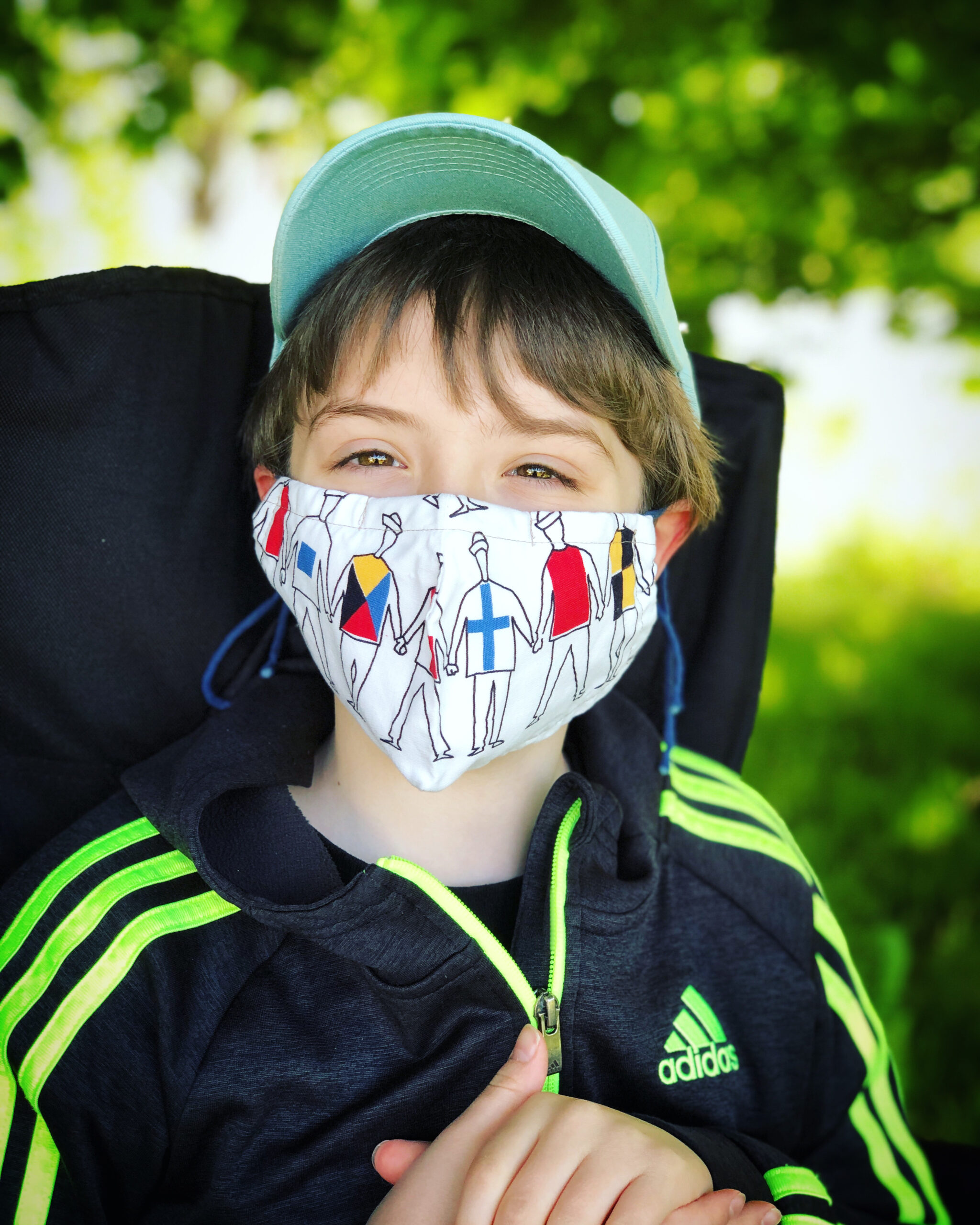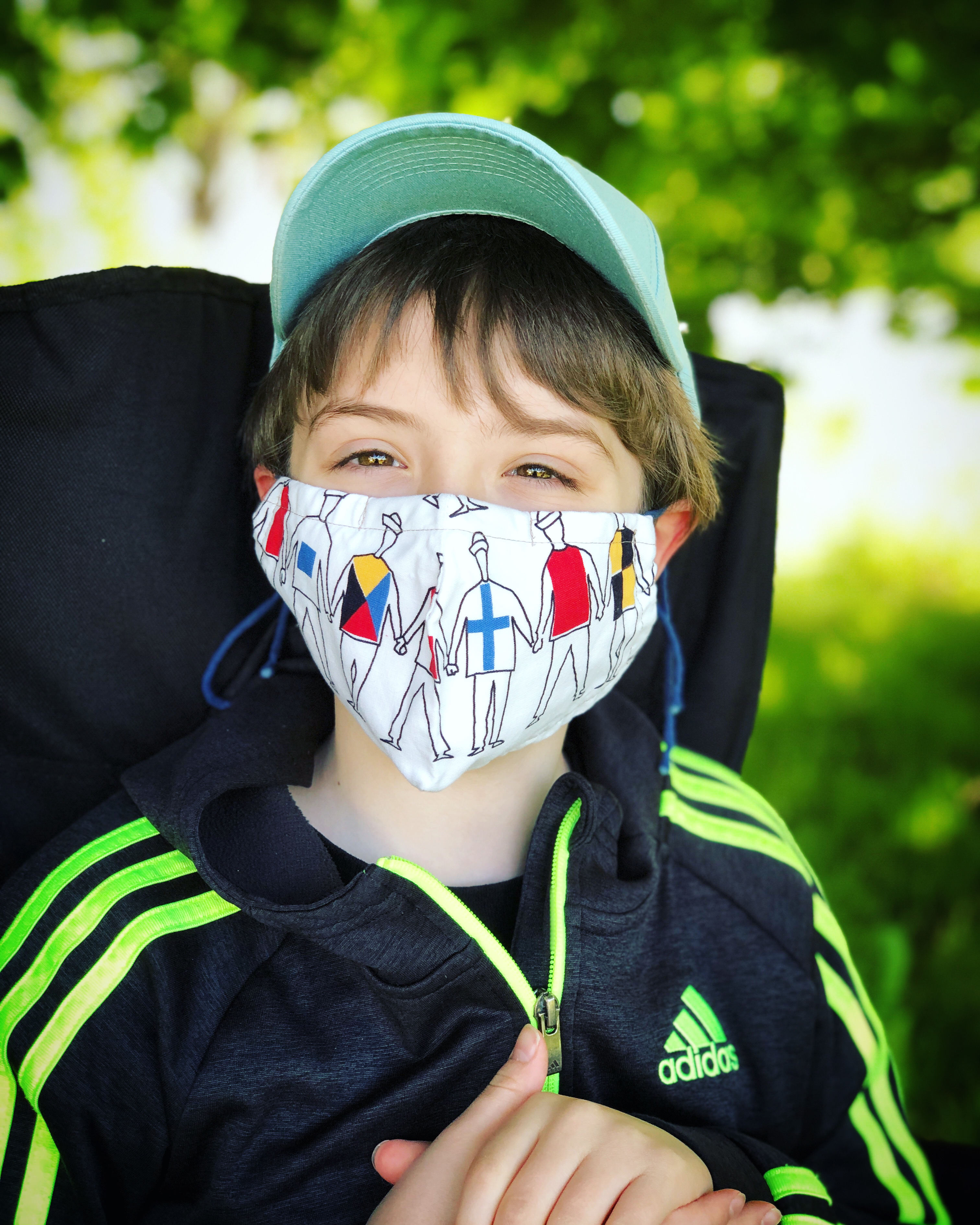
Like many parents, Julie MacDougall is taking the time now to get her kids ready to go back to school by gradually tightening up loosened routines.
This includes going to bed earlier, waking up earlier, getting eating habits back on track with healthy snacks and meals eaten on a more regular schedule, dressing oneself and brushing teeth immediately and independently after getting up, having a quiet evening routine after dinner, and making time for reading books before bed.
“The hope is that these things will develop and seem natural by the time we – meaning me, too, as I’m a teacher – all go back to school,” says the Dartmouth, N.S. mom.
With not having been in a physical classroom since March, and students having been out of a routine for school and extra-curricular activities, it is going to take some time to adjust to being back to school.
The most significant and powerful thing we can do now is to become a model for the behaviours we want to see in our children, say Lisa and Laurie Pinhorn, holistic family interventionists in St. John’s, N.L. and co-owners of Feeding Futures, an organization dedicated to cultivating calm, connected and compassionate environments for children.
“If we want them to get back into a schedule, we need to do it too,” says Pinhorn.
If we want our children to eat great food, turn off the screens, and get to bed earlier, it’s up to adults to model that behaviour, she adds.
“Preparing for back to school is a family affair, and this year we all need to be ready for the stressors – not just the children. When school goes back in September, we all need to be rested and ready,” says Pinhorn.
Once school starts, there will be inevitable exhaustion that comes from being around people in a day-long routine and in a high-stress environment.
Pinhorn tells families the best way to counteract this is by thinking about four holistic health pillars that need to be in full rotation – nutrition, sleep, connection time and exercise.

When stress is high, these four things will help keep our bodies and brains in balance.
“These four holistic health and mental health elements are tightly woven together and when one goes off, the others will likely follow. When we are out of balance, we have the perfect environment for emotional dysregulation and increased stress behaviours. When stress gets consistently high with no downtime, we can fall into a stress cycle,” says Pinhorn.
With this in mind, Pinhorn says to watch your child for an inability to focus, changes in eating, sleep challenges, digestive issues, belly pain, difficulty being social, lack of empathy, aggression, extra tears, self-isolation and school refusal.
“Remember, the stress behaviour list applies to all family members, not just children,” cautions Pinhorn.
When you see a rise in stress behaviours, our plan should have two equally important parts – lower stressors and focus on these four fundamental holistic health pillars, advises Pinhorn.
Brigette Forrestall of Antigonish County, N.S. has been reviewing these principals with her preteens. I have been having talks with them about mental health and signs in themselves to look for, and ways to help peers, ways to ask for help, and changes they may experience and how to adjust to them, she says.

Preparing younger kids
Besides getting ready more generally, there are specific things parents are practicing getting their younger children ready for school, as well.
Alex Michel, from Spryfield, N.S., says that as her child heads into Primary, they are practicing opening lunch bags and self-care, like washing hands and closing water bottles carefully.
“We are also learning to pump out own hand sanitizer, mask care and putting on our own shoes and jackets. I’m also trying to practice basic skills, like asking for help and following instructions.”
Many teachers suggest that children start practicing opening containers in their lunch bags, putting their own shoes, zipping/fastening jackets, and opening packaged foods. Practicing using utensils to eat is also important, as one teacher noted, as crackers and finger foods are going to be tough unless the lunch monitors encourage hand washing as soon as kids finish eating.
Nick Diamond, executive director of the Autism Society of P.E.I., offered advice for parents of diverse learners that is equally as important for all learners.
When it comes to preparing for the new health protocols in place, Diamond says he tells parents to talk openly about the return to school with their children and the uncertainties they may have. Parents can also review, practice and educate their kids on how they can protect themselves and others.
Diamond suggests practicing mask use in the home as well as personal hygiene basics, such as increased hand washing, covering coughs and recognizing when they are sick or feeling ill.
Patricia Tellum has been doing just this.
“We are practicing wearing our masks by going out shopping so that the kids won’t feel like it’s scary to see other people wearing masks. And most importantly, we are staying positive with no negative talk about back to school or having to wear masks,” says the New Glasgow, N.S. mom.
Prepare your kids for a new before and after school routine and allow your child to take part in the process. This may involve waking your kids up progressively earlier as school approaches, and choosing activities they can participate in, says Diamond.
Give students a choice in the schedule-making process, Diamond recommends.
“Everyone wants to have control over their choices,” he says, adding that students will feel ownership over a plan they had a hand in making.
Lastly, Diamond suggests limiting screen time and encouraging physical activity and getting children outside every day. Encouraging increased levels of activity, accompanied with positive reinforcement, will help students improve in their level of endurance, motor skills, muscular strength, and social functioning.
“After a long summer, students develop and grow,” says Diamond. “Sometimes, when staff and parents step back and allow your child increased independence, they end up thriving and surprising you,” he says.
Not feeling changing up routines yet? That’s OK too. Teacher Sandy Spindler of Mahone Bay, N.S., says she has yet to change any habits for her family as they prepare to go back to school.
“Our children have been through a lot and are true champs who haven’t been given the credit they deserve. I will continue to let mine soak up every last ounce of later nights, more screen time, extra stories, etc., until probably the week before school. They need every bit of it,” she says.
RELATED: